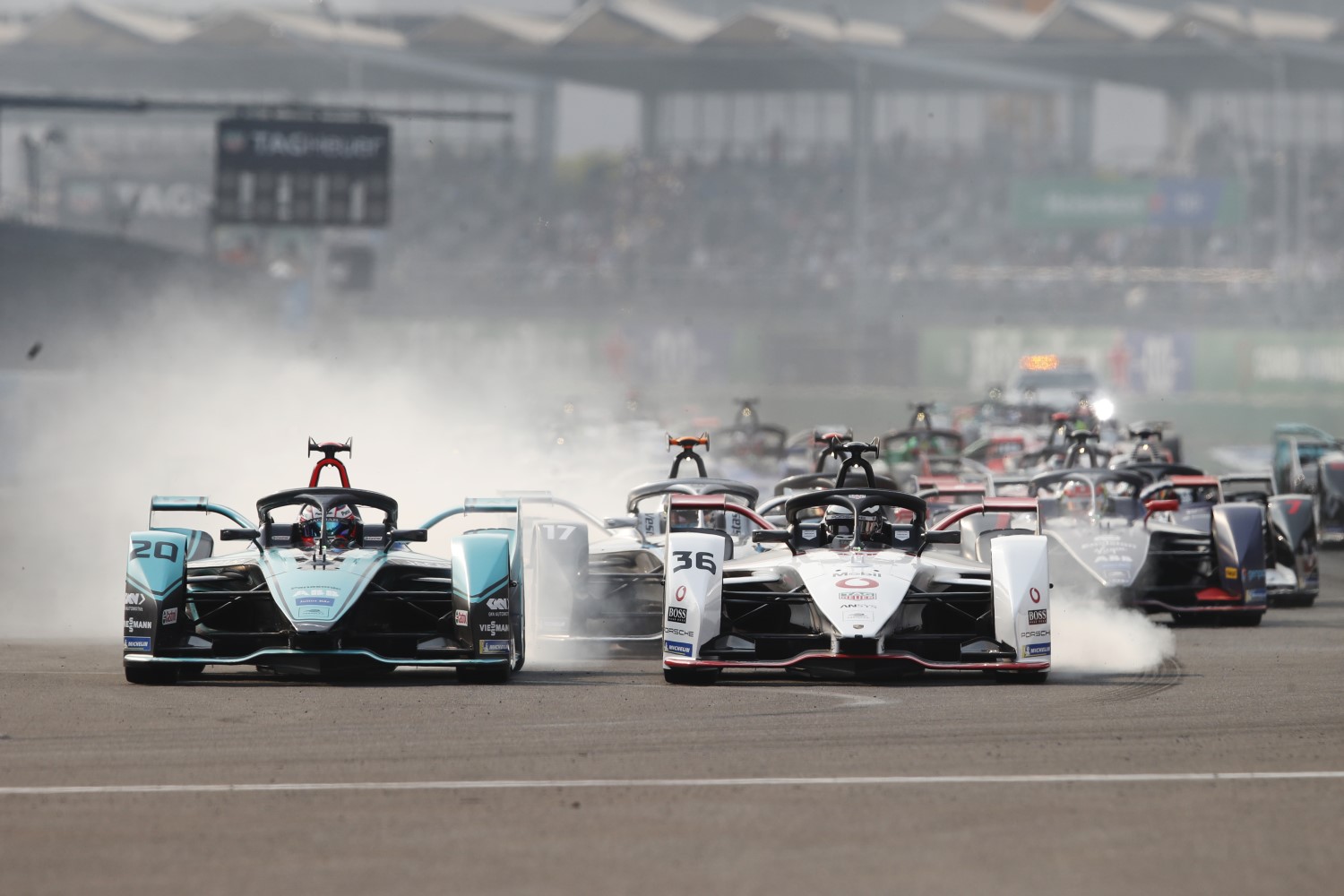FIA, Formula E and teams agree to cost cutting
 |
| Formula E at Mexico City |
Formula E and the FIA have today confirmed that the championship will reduce the financial burden on its teams amid the global health crisis by lowering development costs.
As part of the plans to reduce costs, Formula E, the FIA, the teams and manufacturers unanimously agreed to postpone the launch of the Gen2 EVO car until the 2021/22 ABB FIA Formula E World Championship.
Following an e-vote, the FIA World Motor Sport Council (WMSC) ratified the decision to extend the homologation period, with manufacturers only able to alter powertrain components once over the next two seasons.
Teams can either introduce a new car in season seven, for a two-year cycle, or continue to use existing technology for the next season before homologating a new car the year after for a single season.
After discussion with manufacturers, the changes to the technical regulations have been made with the long-term financial stability of championship participants in mind.
Formula E and the FIA have taken a flexible and collaborative approach to decreasing spending, which will see car development costs cut by half over the next two seasons.
In addition to supporting its immediate community, Formula E is committed to finding more ways to fight the global health crisis and help others affected by the spread of coronavirus.
FIA PRESIDENT JEAN TODT
"In these difficult times, adapting the cost structures in motorsport is a priority to ensure its sustainability. I encouraged the decisions regarding the FIA Formula E Championship approved by the World Motor Sport Council in this regard, which are in line with the discussions currently underway for the other FIA disciplines."
FOUNDER & CHAIRMAN OF FORMULA E ALEJANDRO AGAG
"During these challenging times, we have taken a flexible approach. Not only with the quick and sensible decision to temporarily suspend the season, but now by implementing cost measures to lower development costs for the teams. We listened to feedback from the teams and manufacturers and worked closely with the FIA to push back the launch of the Gen2 EVO and limit teams to a single homologation over the next two years. By doing so we have cut the projected car development costs in half. This was a necessary action to take to contain costs, given the health crisis and economic environment."
